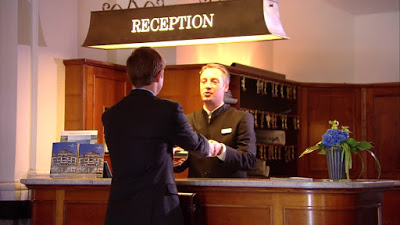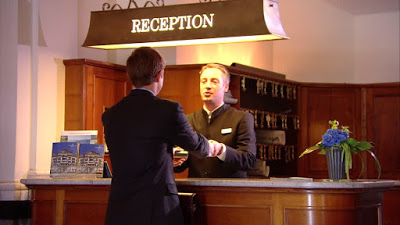Cypriot hoteliers and tour operators observe an increasing trend in cases of claims for sick leave that British tourists allegedly had during their holidays.
Last summer several of our "all-inclusive" hotels received a series of lawsuits and after complaints from Spanish hoteliers, it turned out that portions of tourists are encouraged by law firms to claim compensation with false representations. British newspapers talked about the whole circuit behind this case.
Cypriot hoteliers attribute the phenomenon to the fact that more and more British tourists are taking advantage of a very loose compensation system in place in their country to discover gastrointestinal events and illnesses and then demand a refund of their stay in Cyprus. . Their legislation, as they told us, allows them compensation up to three years later.
The issue was identified by the Association of Tourism Enterprises of Cyprus (STEK), and as stated by the director Chrysaimili Psilogeni Kenevezou, it is a very worrying phenomenon, as the British are claiming several thousand euros in lawsuits. In particular, as Ms. Kenevezou explains, British tourists after their vacation visit a doctor in their country and state that they became ill due to eating at the hotel or claim that they had an accident while staying at the hotel. They then address their travel planner through letters of attorney from a lawyer, with the result that the travel planner deducts large sums from the Cypriot hotels from the due of their contracts until the trial of the case and the insurance companies pay increased amounts (increasing the premium to hotels).
"We have already had contacts with major British travel agents (Thomas Cook, TUI UK, Jet2Holidays), and we have informed the CTO and the Ministry about this issue and we expect pressure to be exerted at a higher political level to make changes to the legislation." pointed out Mrs. Kenevezou.
The actions proposed by STEK are to include the following terms in the contracts:
1. In case of illness, illness or accident, inform the hotel reception or the representative of the tour operator (Rep).
2. The hotel has the right to request a medical opinion, either by the on-site examination of the patient at the hotel, or by referring the patient to a clinic.
3. The hotel can have access to medical advice.
4. Any request from a customer, through the tour operator, can be made up to 30 days from the day of departure from the hotel.
5. The contracts should be governed by the Cypriot, and not the British, Law.
For his part, the Chairman of the Board of CTO, Angelos Loizou, stressed that the role of CTO is to guide and indicate to those involved how they can move. "The state has no legal involvement as it is not part of the contract between two individuals," he explained. In fact, the Chairman of the Board of the CTO stated that in an exhibition in London various performances and suggestions were made to travel agents. "In addition, we have indicated to the hoteliers that it is a legal matter and they should amend their contracts," added Mr. Loizou.
How the fraud was discovered by the Spaniards
The fraud was brought to light shortly after the summer season by Spain. The Spanish hoteliers noticed during the summer months an "epidemic" of gastrointestinal events on the part of British -only British- tourists, accompanied by claims for compensation. This led the professional association of hoteliers in Benidorm, Costa Blanca and Valencia to suspect that they had fallen victim to massive fraud by the British.
"Hoteliers working with British tour operators have seen a 700% drop in claims for sick leave that they allegedly had during their holiday," the hotel association said in a statement. He explains that these "illnesses", which mainly concern gastrointestinal episodes, were not observed in customers of other nationalities, Belgians, Dutch or Portuguese, who also spent the holiday period with the British in the same hotel facilities during the disputed period of "illnesses".
In fact, the Spanish hoteliers estimate that they have accepted around 10 thousand such requests, while the cost for the Spanish hotel industry will reach € 60 million.
The system, according to the Spaniards, "works" as follows: Returning to their homeland, the British complain to the travel agencies that sold them the holiday package in Spain. The offices then turn to lawyers who are suing Spanish hotels.
Source: Phileleftheros / Dimitra Landou

